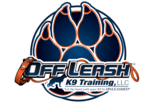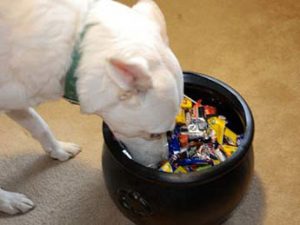What Are Foods That My Dog Should Never Eat?
At our dog training facility in Northern Virginia, we always get asked about foods that people should avoid their dog eating. There are quite a lot of of them, actually. Anyone with a dogs knows that it can sometimes be hard to completely prevent your counter-surfing dog from snatching some foods off of the counter that they should not have. Clearly, if this is your issue, this can be fixed through obedience training, it’s a common problem that we deal with on a day-to-day basis.
However, some owners just like for their dogs to eat like them! They love them and want to give them their amazing tasting “human-grade” food, right? This love for your pet is fine, as long as you know the foods to avoid!
Things You Should Avoid Ever Giving Your Dog:
We will start with the obvious, that I “think” every dog owner in the world knows! Chocolate/Caffeine – The active ingredients in chocolate and caffeine theobromine and theophylline, which is toxic to dogs. They have been known to cause heart or nervous system failure even in reasonably small amounts. Also remember, the darker the chocolate, the more dangerous for your dog. To give you an example, Denver based veterinarian Kevin Fitzgerald says, “20 ounces of milk chocolate, 10 ounces of semi-sweet chocolate, and just 2.25 ounces of baking chocolate could potentially kill a 22-pound dog.” However, it should be noted that serious toxic or health problems could arise with even lower doses than listed above. In summary, no amount of chocolate should ever be acceptable for your dog and you should avoid it’s ingestion at any cost.
Milk Products – Can cause diarrhea.
Sugary Foods – Can do the same thing it does to humans, cause obesity, dental problems, diabetes, etc.
Alcohol – alcohol even in small amounts can cause coma or even death in small pets.
Bones – If giving your dog a raw diet (or if accidental), ensure they do not consume any bones. This can cause cuts, obstructions, and intestinal blockages.
Cat Food – Sometimes you may find your dog sneaking into your cat’s bowl because they often times find cat food (which is richer and fattier) delicious! Cat food is very high in protein and dogs often time can have a hard time digesting this.
Citrus Oil Extracts – May elicit vomiting in dogs.
Fat Trimmings – Fatty foods are a common cause of pancreatitis, so try to avoid giving your dog your fat trimming scraps.
Grapes or Raisins – Known to contain a toxin that can lead to kidney damage.
Liver – Ingesting too much can adversely affect the dog’s bones and muscles by creating vitamin A toxicity.
Macadamia Nuts – Much like raisins and grapes, the toxin and mechanism of action are not known at this time
Molds – Ingesting any form of molds have the same affect on dogs that it has on humans (except generally worse because they are smaller).
Mushrooms – Some mushrooms are toxic to dogs (just like people), which can result in shock, nervous system failure, and even death in severe cases.
Onions and Garlic – Can cause anemia and blood damage in both cats and dogs.
Peaches , Avocados, Plums – Peaches and plums themselves are not unsafe for your dogs to eat; however, they contain pits which can present a choking hazard to your dog. All pitted or nutted foods should be avoided.
Raw Eggs – Eating avidin enzyme can reduce biotin absorption and lead to hair and skin problems or get salmonella poisoning, as well.
Raw Fish – Feeding your dog raw fish can lead to a thiamine deficiency. This can cause your dog to lose his appetite, have seizures, and can even lead to death if your dog eats raw fish regularly.
Salt – Too much salt in dogs has the same affect as too much salt in humans, it can lead to dehydration.
Xylitol – This is an artificial sweetener, which can lead to liver failure.
Yeast – Yeast can cause swelling and pain in the stomach.
If your dog has ingested an abnormal quantity of any of these items, contact your local Vet immediately! Also, you can contact the ASPCA Poison Control Center at (888) 426-4435.
So, safe-proof your house, your pantry, and your cabinets to ensure your dog doesn’t get ahold of foods that they should never eat.
www.offleashk9training.com
www.youtube.com/offleashk9training
www.facebook.com/offleashk

